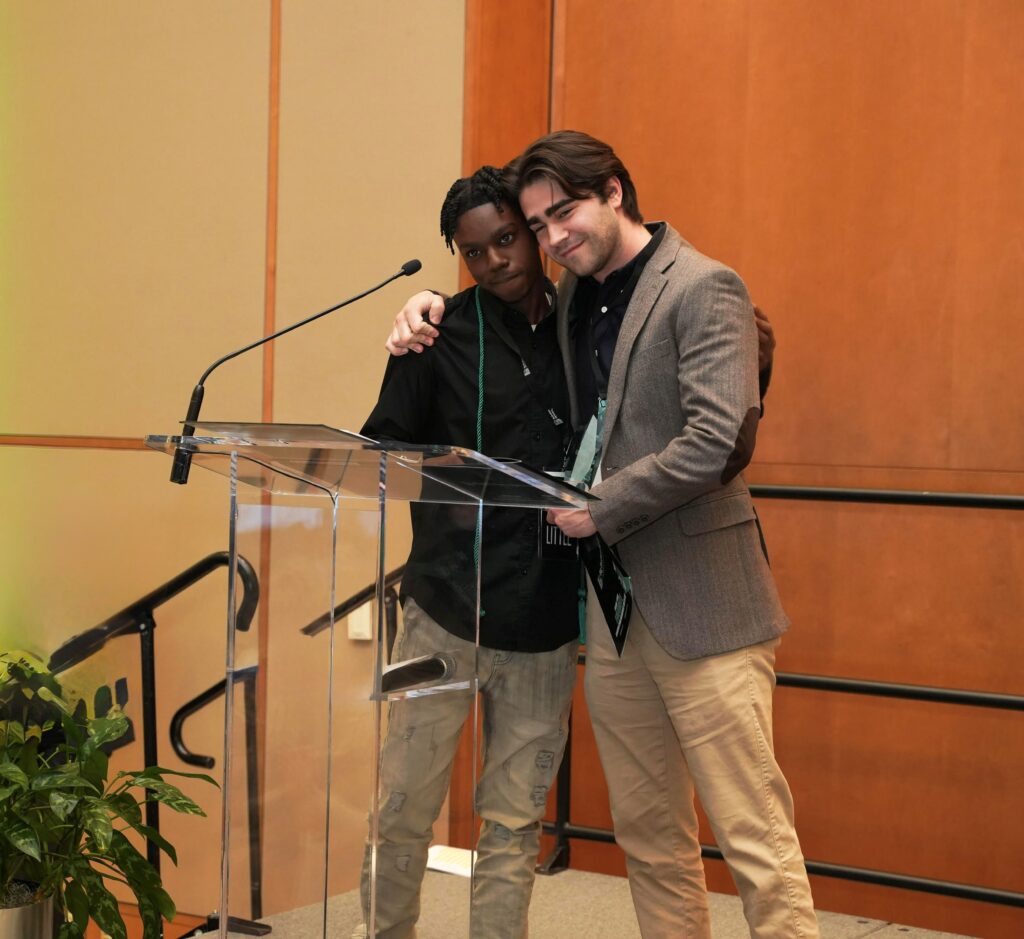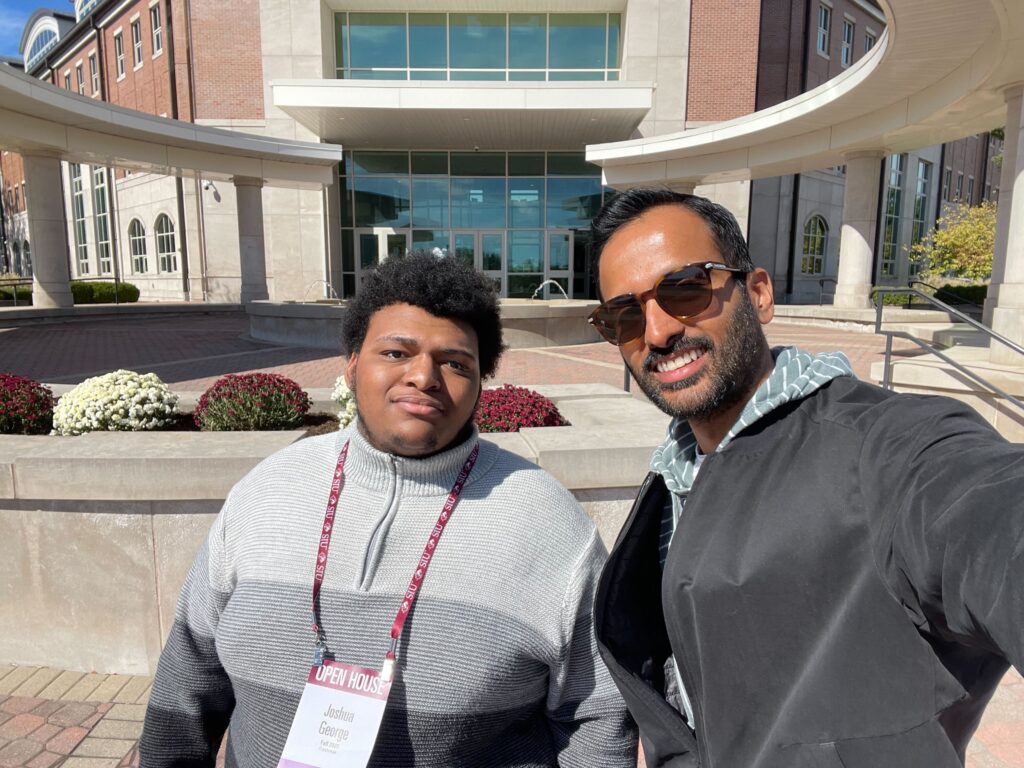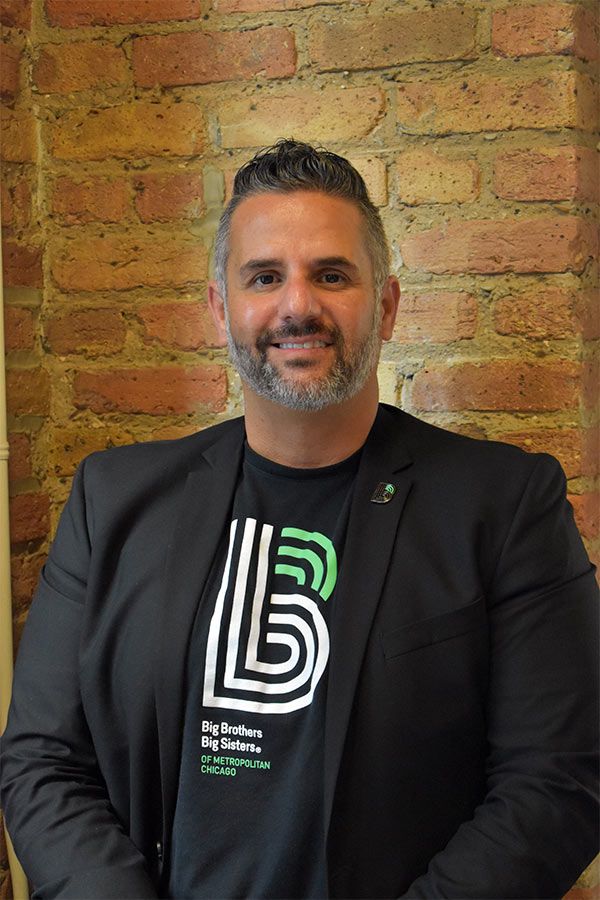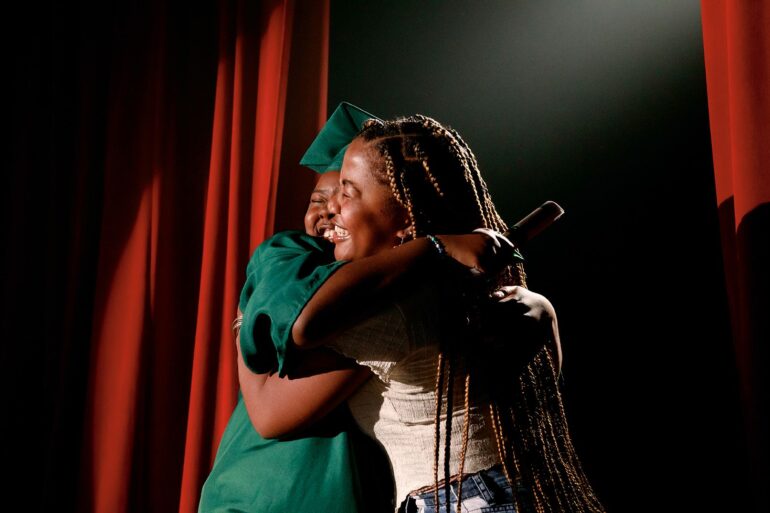When Antoine first met his Big Brother, Connor, through Big Brothers Big Sisters (BBBS), their connection was effortless — forged over pickup basketball games, trampoline park outings, and shared plates of good food. What began as simple fun soon became something much more powerful: a steady source of guidance and belonging.
After losing his older brother to gun violence, Antoine could have easily drifted off course. Instead, Connor’s consistency — the check-ins, the encouragement, the example of what success can look like — helped him find resilience and purpose. As Antoine prepared to graduate high school, his hands-on curiosity led him toward trade school, where he’s now pursuing studies in engineering and mechanics.
“Without my mentor, I’m not sure where I would be,” he says. “He showed me that I have options — and a future worth fighting for.”
Stories like Antoine’s highlight the power of mentorship — and the difference one steady relationship can make at a time when many young people are struggling to stay on track.

Why Aren’t All Students Graduating?
In 2024, Chicago Public Schools celebrated the third year in a row of record-high graduation rates, steadily growing from 80 to 85 percent in the last four years.
While this progress is an amazing accomplishment, there are still 15 percent of students who aren’t making it to their graduation — underscoring a nationwide concern.
The national average graduation rate hangs around 87 percent, with lower rates often seen among Black and Latino students.
Behind those numbers are complex, overlapping factors — from home environments and school climate to the growing mental health crisis affecting young people everywhere.
In recent years, psychologists like Jonathan Haidt, author of The Anxious Generation, have also identified “great rewiring of childhood” as a key factor in a student’s likelihood to graduate.
Children are facing the worst mental health crisis of a lifetime. Young people are struggling with increased rates of anxiety and depression, contributing to a rise in truancy. In 2024, the U.S. Surgeon General released an advisory calling attention to the public health crisis of loneliness, isolation, and a lack of connection across the nation. With students caring so much stress, it’s hard for them to focus on school.
Much of the anxiety in students came during the 2020 COVID-19 pandemic. Child psychiatrist and human development thought leader Pamela Cantor, M.D., along with City Year’s CEO Jim Balfanz, took an in-depth look at the rewiring that would need to occur after the pandemic, identifying that positive relationships are key to helping students.
“Strong, trusting relationships are not just nice to have … positive relationships stimulate the connections among brain structures, support the development of complex skills like reading, shield children from the effects of adverse events, and enable resilience to future stress,” explains Dr. Cantor and Balfanz.
Mentors Create Pathways to Higher Education and Economic Mobility
Big Brothers Big Sisters (BBBS) has been a positive intervention for young people over the last 120 years, helping students reach success in and outside the classroom. In Chicago, 99 percent of students enrolled in BBBS graduate from high school, and 97 percent graduate with a plan for their future.
One of the primary focuses of Big Brothers Big Sisters is putting a caring mentor in a child’s corner and creating positive experiences. Positive experiences unlock a child’s potential by helping to improve both their outlook and outcomes. Repeated exposure to positive experiences and role models helps to combat trauma with opportunity, giving the 1,600 kids BBBS serves something to look forward to and a mentor they can count on.

And mentorships don’t only help students in school. Conducted by leading researchers from Harvard University and the U.S. Department of Treasury, a first-of-its-kind study provides compelling evidence that mentoring programs, like Big Brothers Big Sisters (BBBS), can serve as a scalable solution to reduce socioeconomic disparities over time.
Rooted in 30 years of data, the study explains that a caring and consistent mentor not only impacts a young person’s present but also shapes their future and creates a ripple effect throughout the community.
- Mentees are 20 percent more likely to enroll in college after high school graduation
- Former mentees will earn 15 more than their peers, an average of $250,000-$400,000 more in lifetime earnings
- 2/3 of former mentees experienced upward mobility, as if born to wealthy parents.
Thanks to this research, it’s proven science that mentorship programs like Big Brothers Big Sisters have a generational impact, not only on student success for lifelong excellence.
How to Help
Big Brother Big Sister creates and supports one-to-one mentoring relationships that inspire all youth to achieve their full potential. To help support their mission, you can:
- Become a Big: The organization has a waitlist of Littles who are waiting to meet their new mentor.
- Become a Match Maker: Make a monthly gift to help introduce a waiting Little to their Big each month.


Jeremy Foster is the President and Chief Executive Officer of Big Brothers Big Sisters of Metropolitan Chicago (BBBSChi), the region’s largest and most experienced youth mentoring organization. 2025 marks Jeremy’s 18th year at BBBSChi.

